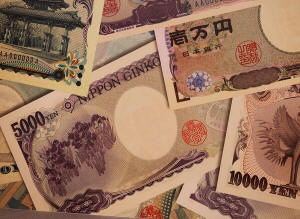Stocks rally fades as traders puzzle over US economy
 Send a link to a friend
Send a link to a friend
 [June 21, 2024] By
Naomi Rovnick and Dhara Ranasinghe [June 21, 2024] By
Naomi Rovnick and Dhara Ranasinghe
LONDON (Reuters) -Global stocks traded cautiously on Friday as the
dollar hit multi-week highs and markets awaited U.S. business surveys
for clues to determine whether the world's largest economy remains
strong enough to withstand high interest rates.
MSCI's broad index of global stocks was down around 0.25% on the day,
nudging off record highs hit a day earlier but still up around 2% for
the month so far.
Europe's STOXX share index was down around 0.8%, following data that
showed euro zone business growth slowed sharply this month. U.S. stock
futures slipped and implied Wall Street's S&P 500 would also drift down
in early New York dealings.
The mood was indecisive ahead of the release of S&P Global's U.S.
purchasing manager indices, viewed as real-time snapshots of business
confidence and economic activity, later in the day.
Economists polled by Reuters expect this month's indices to produce
readings above the level of 50, which show activity is expanding, but a
slight drop since last month.
A robust U.S. economy has propelled Wall Street stocks to record levels
and dissuaded the Federal Reserve from cutting interest rates from its
23-year high of 5.25% to 5.5%.
Markets are currently clinging to a narrative that the economy and
inflation will decelerate just enough for the Fed to ease financial
conditions gradually.
But that ignores risks such as the lagged effects of tight monetary
policy causing a hard slowdown, or further economic growth keeping rates
high for longer, said Russell Investments global head of investment
strategy Andrew Pease.

"I'd be concerned about higher (market) volatility in coming months as
the market oscillates between seeing the soft landing and worrying that
maybe it's not going to happen," he said.
INTERVENTION ZONE
Meanwhile, relentless dollar strength pushed the Japanese yen towards
the intervention zone.
The yen dropped to around 159.12 per dollar, its weakest levels since
late April when Japanese authorities intervened to stem the currency's
rapid decline.
"The price action highlights that the impact of intervention by Japan to
support the yen...has almost fully reversed," said MUFG currency
strategist Lee Hardman.
"The yen has resumed its weakening trend even as yield spreads have been
moving in its favor in recent months."
Data showed earlier on Friday that Japan's demand-led inflation slowed
in May.
[to top of second column] |

Examples of Japanese yen banknotes are displayed at a factory of the
National Printing Bureau producing Bank of Japan notes at a media
event about a new series of banknotes scheduled to be introduced in
2024, in Tokyo, Japan, November 21, 2022. REUTERS/Kim Kyung-Hoon/
File Photo

That complicated the outlook for how quickly the Bank of Japan might
move towards rate hikes after ending negative rates in March in a
landmark signal the nation might have ended a long era of deflation
and demographic decline.
BoJ deputy governor Shinichi Uchida said on Friday the central bank
was willing to raise rates if the economy and prices move in line
with its forecasts, but signs of weakness remained.
The dollar also benefited from a growing divergence between Fed
policy and that of central banks in Europe. On Thursday the Swiss
National Bank cut rates for a second time, while the Bank of England
opened the door to rate cuts in August or September.
Sterling, the Swiss franc and the euro also weakened against the
dollar on Friday.
MSCI's broadest index of Asia-Pacific shares outside Japan fell 0.6%
on Friday, dragged lower by a pull-back in technology shares in a
repeat of patterns on Wall Street in the previous session.
In debt markets, U.S. Treasuries were set to end the week on the
back foot as Fed rate cut doubts lowered the appeal of the fixed
interest-paying securities.
Two-year Treasury yields were last down around 2 basis points (bps)
at 4.71%, but set for a weekly rise of 3 bps. Ten-year yields are up
2 bps for the week, trading at around 4.23%. Bond yields rise as
prices fall.
In Europe, bond yields fell following weaker-than-expected business
activity data, with Germany's 10-year Bund yield down 5 bps at
2.37%.
HCOB's preliminary composite Purchasing Managers' Index, compiled by
S&P Global, sank to 50.8 this month from May's 52.2.
UK 10-year gilt yields fell 2 bps to 4.04%, reflecting hopes of BoE
rate cuts and as predictions of the opposition Labor Party winning
next month's UK election drew investors back to British markets.
Brent crude futures dipped 0.1% to $85.61 a barrel after hitting
seven-week highs earlier in the week.
Gold was a touch lower at $2,363 per ounce.
(Reporting by Naomi Rovnick, Dhara Ranasinghe and Stella Qiu;
Editing by Jan Harvey and Shinjini Ganguli)
[© 2024 Thomson Reuters. All rights
reserved.]
This material may not be published,
broadcast, rewritten or redistributed.
Thompson Reuters is solely responsible for this content.
 |